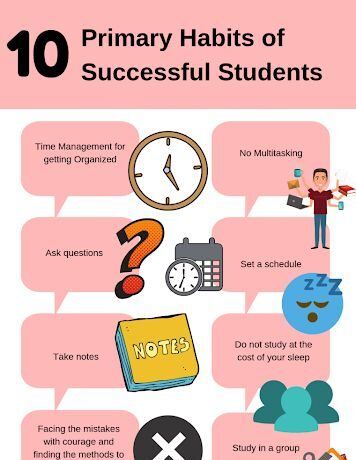How to Become a Student Entrepreneur Infographic
For some, the thought of starting up a business at university might sound impossible. Some courses are incredibly demanding and therefore might might it very difficult for students to find the time to dedicate to a business. It might be very tough, but it's not impossible and more and more students are indeed taking the plunge and setting up their own business. After all, the most successful entrepreneurs are those who find any way they can to get their business of the ground, regardless of how much time they have available. The How to Become a Student Entrepreneur Infographic is an easy-to-follow guide to some of the most important steps students need to take to set up their own business from the ideas stage to registering your business.
Step 1: Evaluate yourself
Identify:
- Your skills and knowledge
- Your desired industry
- How you want to work
Ideally, you’d want some appropriate work experience in the area of business you want to pursue – but don’t be afraid to venture out into the unknown if you’re motivated enough.
Step 2: Have a good idea
A good business idea identifies a need and then satisfies it. Evaluate your idea.
Step 3: Research the competition
Identify and understand your competitors.
Search:
- Online: Enter key words or phrases about your business, service or product into various search engines. Companies with the highest rank will give you a good idea of who your main competitors are.
- In print: Advertisements or features placed in industry magazines and trade publications can help to reveal local or international competition.
- In person: Attend trade shows. The largest and most successful of your competitors will likely have a presence at industry events.
Evaluate them:
- How are they perceived? Check consumer reviews on sites such as Google, Yelp and Yell.
- How do they promote themselves? Sign up for any marketing materials, such as newsletters, company updates, social media or their RSS feed.
- See how they work. If possible, go through their sales process
- Look at your competitors and pinpoint their strengths and weaknesses. This will help you figure out your next step.
Step 4: Make a business plan
A successful plan will clarify your idea, define your long-term objectives and provide a blueprint for running your business.
Your plan should include:
- The business concept: Basic background of the industry, business structure and details of your product or service offering
- Markets and competitors: Details of the customer demographic, any competing products or services and your competition.
- Sales and marketing: Strategy defining how you’ll build your customer base.
- Management team: Information about each person’s responsibilities, and what skills they bring to the table
- Financial requirements: Based on realistic projected financial statements
- Risk assessment: Any potential weaknesses which may affect the success of the business.
Tip: As a student, you’re eligible for more funding opportunities than the average entrepreneur.
For information on funding bodies, contact:
- The National Association of College and University Entrepreneurs
- The Prince’s Trust
- New Entrepreneurs Foundation
- Start-up Britain
Step 5: Seek a mentor
Get advice from people in the industry, or see if you can find someone experienced to mentor you.
If seeking a mentor, look for someone with:
- A successful business you wish to emulate
- Experience in the industry you wish to enter
Most universities have mentoring schemes for student entrepreneurs. However, you might get more experience and industry contacts by seeking out your own mentor.
Step 6: Register your business
Registering your business keeps you on the right side of Her Majesty’s Revenue and Customs (HMRC). Consider which type of business is best for you. Options include:
Sole trader
- Only you own the business
- You have to register for Self-Assessment tax
- You can work alone or employ other people
Limited company
- You appoint directors to run the company
- Company must be registered with Companies House
- You pay tax on both your income as both a director and an employee
Business partnership
- You have to register for Self-Assessment
- You share profits between partners
Congratulations you are now officially in business. Next stop: success!







You can adjust your cookie preferences here.